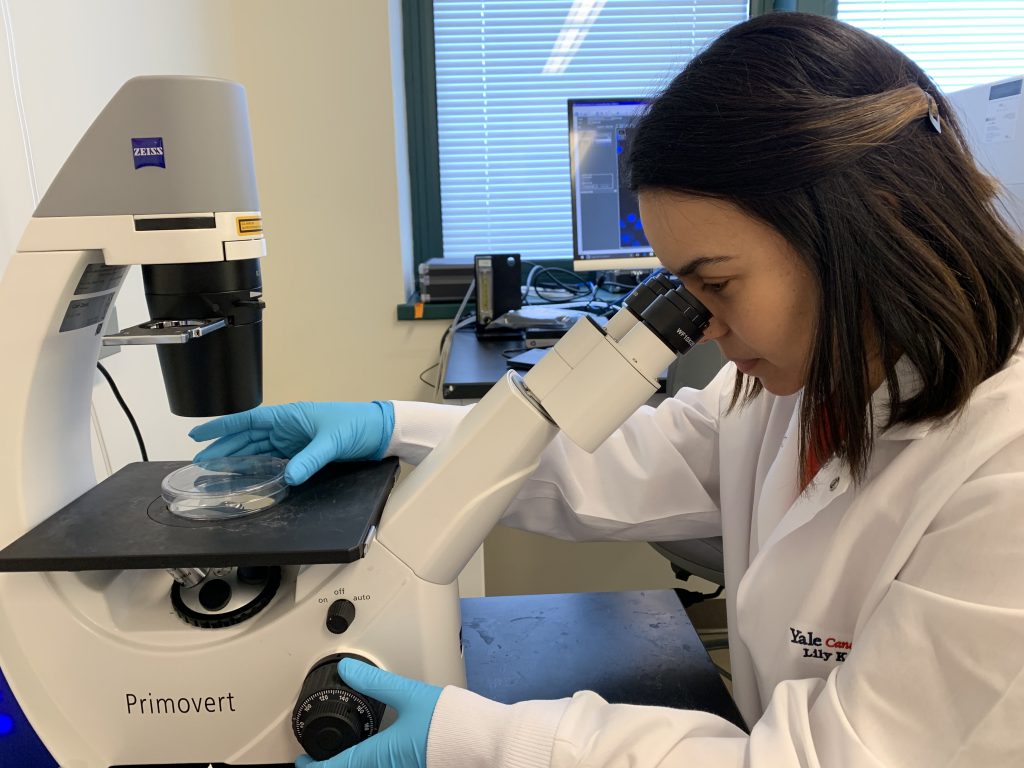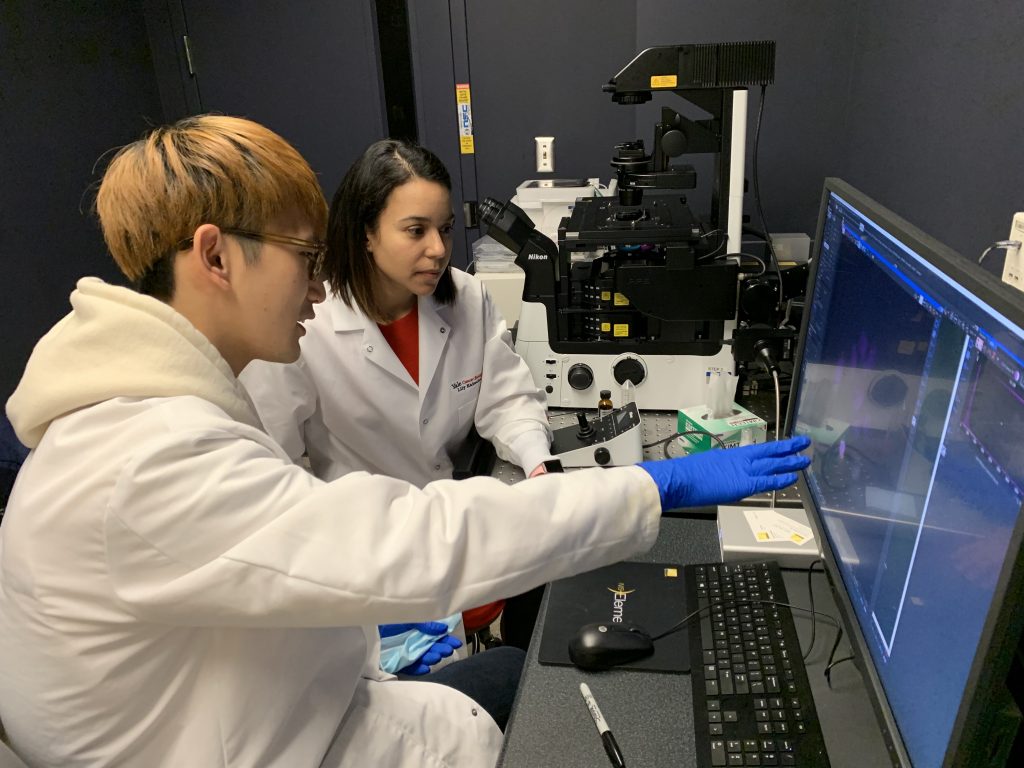Lilian Kabeche, PhD ‹ Back To 2021 Winners
2021 Winners
Assistant Professor
Molecular Biophysics and Biochemistry
Yale School of Medicine
Vision
Most solid tumors are aneuploid, meaning that they have deviations from the diploid karyotype. In addition, most aneuploid tumors are not stably aneuploid but exhibit chromosome instability (CIN). CIN creates tumors that are heterogenous and is highly correlated with poor patient prognosis. Although aneuploidy and CIN are highly prevalent in tumors, we have not yet been able to identify effective chemotherapies that target CIN cells. Our work strives to understand how the pathways that maintain chromosome stability throughout the cell cycle work in concert. This has led to an exciting discovery whereby ATR, a master kinase of the DNA damage response pathway, is active in a DNA damage-independent manner at specific regions of the DNA throughout the cell cycle. We are delving into this and other pathways to with the ultimate goal of using this knowledge to create effective therapies against cells exhibiting chromosome instability.
(Featured image photo credit: Isabelle Trier)
Lilian C. Kabeche, PhD is an Assistant Professor of Molecular Biophysics and Biochemistry and a member of the Cancer Biology Institute at Yale University. Lilian obtained her graduate degree in Biochemistry in Dr. Duane Compton’s lab at Dartmouth College, investigating the regulation of kinetochore-microtubule attachments in mitosis. During this time, Lilian discovered the role of many key mitotic proteins in maintaining correct kinetochore-microtubule attachments to promote faithful chromosome segregation. Her work identified a novel role for cyclin A in this process. She transitioned to a post-doctoral fellow in Dr. Lee Zou’s lab at Massachusetts General Hospital/Harvard Medical School, where she elucidated a novel the role of ATR, a DNA damage response protein, in mitosis. In 2019, she started her lab at Yale University. Here, her lab strives to uncover how the intricate pathways that regulate the cell cycle are interconnected to ensure genome stability. One aspect of this work is focused on investigating the role of the DNA damage response pathway in ensuring chromosome segregation occurs faithfully throughout the cell cycle. Lilian is a Forbeck Scholar and a recipient of many awards, including a NCI Transition Career Development Award.
Elucidating how centromere dysfunction leads to cancer

Cancer accounts for over 8 million deaths annually, and current therapies have limited efficacy and adverse side effects. Whereas healthy cells rarely mutate, cancer cells have high rates of genetic instability. This leads to abnormalities in DNA content, such as an aberrant number of chromosomes. Changes in chromosome count are associated with increased tumor growth, resistance to cancer treatments, and worsened patient outcomes. Our goal is to create therapies that exploit this DNA instability to target cancer cells while sparing healthy cells. This would increase the success of therapeutics and mitigate the debilitating side effects associated with many treatments. To achieve this, we study a protein called ATR. ATR has many roles that protect cells from mutation and ensure proper chromosome segregation. Specifically, ATR protects cells from gaining or losing whole chromosomes through a novel function at the centromere, a specialized region of the chromosome that mediates the separation of DNA into new cells.
“The Pershing Square Sohn Prize will allow me to take big risks with my research with the goal of finding novel therapies against pancreatic cancer. This award will also give me the ability to push the boundaries of our understanding of how classic cell cycle pathways that we learned in textbooks are intertwined throughout the whole cell cycle to ensure that cells replicate and segregate their DNA faithfully and change our understanding of cell biology.”

Our goal is to understand how ATR promotes proper chromosome segregation by investigating the mechanism by which ATR promotes proper centromere formation and function. Furthermore, we want to determine if pancreatic cancer cells, which have extremely high rates of chromosome missegregation and currently limited therapies, are selectively killed by ATR inhibitors. This work has the potential to increase our understanding of ATR and the processes that promote proper chromosome segregation. By targeting these processes, our work may lead to the creation of a novel therapy that selectively and effectively treats cancers that exhibit continuous chromosome missegregation.
“Innovation is asking questions and creating observations that others have overlooked.”